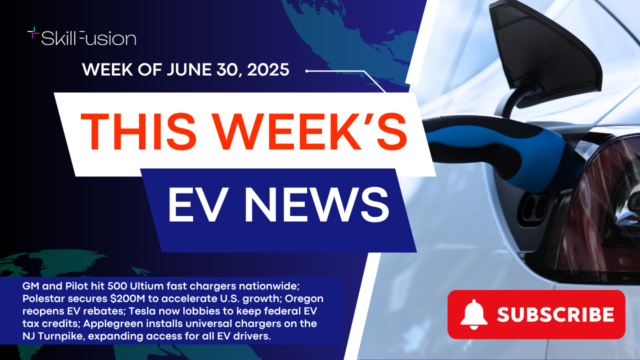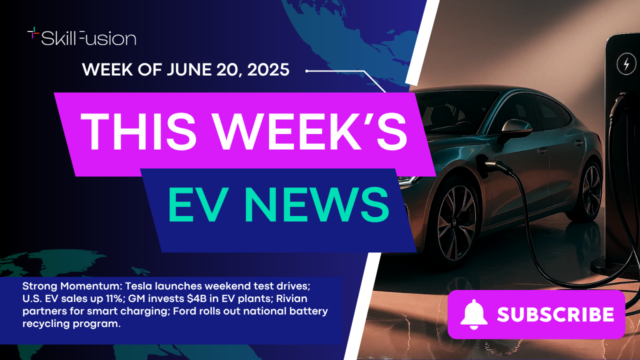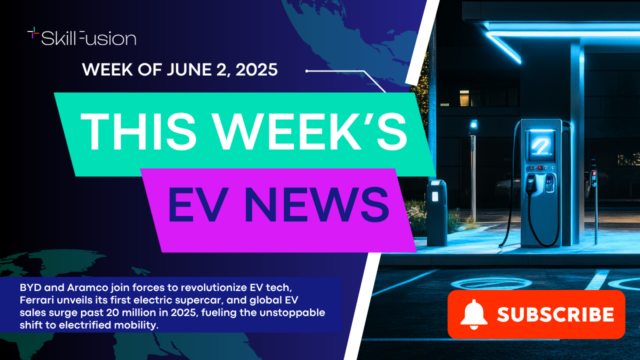February 21, 2024 —Source: Law360
By Rue Phillips and Enid Joffe
The electric vehicle market stands at the crossroads of transformative change. Concerns about environmental sustainability have taken center stage across global headlines, leading many government officials to call for new policies meant to accelerate the adoption of EVs.[1]
With EV innovation reaching new heights and the regulatory framework playing catch-up, 2024 is poised to be an exciting and potentially formative year for the EV market. Here, we dive into the regulatory forces changing the EV landscape and the policies steering the market forward.
Cautious Optimism
On Jan. 19,[2] President Joe Biden announced new actions to cut EV costs for Americans and the continued focus on a robust EV charging station infrastructure.
Among the action Biden announced is a “tax credit [that] provides up to 30% off the cost of the charger to individuals and businesses in low-income communities and non-urban areas,” as well as “$325 million in new investments … to increase the reliability and resilience of publicly accessible chargers, advance EV technologies, and support workforce development for EV charging deployment and maintenance.”
The announcement also explained that sales of EVs have more than quadrupled since Biden took office and that the administration’s support of EVs is all part of the Investing in America agenda.
EVs have immense potential to change the automotive industry’s trajectory. According to a recent report from CCC Intelligent Solutions, they currently account for a modest 1% of all vehicles[3] on the road and are “projected to capture anywhere from 30% to 50% of new car sales globally” by 2030. According to data from EV Hub,[4] “EVs, including plug-in hybrids, accounted for 7.3% [of] sales in 2022” and are “on pace to make up 9% of sales this year.”
While there is great optimism surrounding EVs, there is also concern that their adoption may be outpacing the infrastructure required to sustain them. In addition, the investment required for industrywide transformation of everything from how car insurance is handled to car repair and maintenance structures will be significant.
SkillFusion is already curating the most comprehensive set of competency training and credentials for electrical and non-electrical workers specially designed for the EVSE sector. Electricians interested in expanding their expertise to include the non-electrical side of EVSE O&M can access specialized training through SkillFusion and earn that certification as well. Upon completing the training, multi-skilled EVSE-certified electricians can register within SkillFusion’s portal—the largest database of EVSE technicians for hire—and start working with EV charger owners and operators quickly.
Indeed, the rapid influx of EV adoption and manufacturing has created a complex web of regulatory and legal considerations. Aspects ranging from battery disposal to charging infrastructure to tax credits will need to be scrutinized and assessed for the EV revolution to create the transformation that its supporters truly believe it is capable of.
Changes to Tax Credits
One of the biggest incentives for EV adoption is the Biden administration’s up to $7,500 tax credit[5] offered to EV drivers, which has been provided to drivers who took possession of a new clean vehicle in 2023 or after.
However, in 2024, the administration is enacting changes to this credit to better focus the incentive on domestically produced EVs, such as excluding some vehicles that contain internationally sourced components from China and Russia. Some models will see their available credit cut in half due to Chinese-made batteries, for example, while others will be fully disqualified.
At the same time, there is a loophole[6] that allows “leased EVs [to] qualify for a separate EV program that provides a $7,500 ‘commercial credit'[7] for light-duty vehicles acquired by businesses — including leasing companies,” which has “no limits on the lease customer’s income or on the vehicle’s price,” as explained by an article on Cars.com.
The news isn’t all restrictive, however. Starting Jan. 1, the tax credit became redeemable as a rebate among Internal Revenue Service-registered car dealers. Previously, buyers needed to claim the credit on their following year’s taxes, but now, the credit can be used to effectively reduce someone’s monthly car payment.
Although these new guidelines may reduce the growth rate of EVs, there is hope they will also lower the country’s reliance on foreign manufacturers and make the decision to buy an EV easier for consumers.
Standardized Charging and Better Infrastructure
As part of the Biden administration’s Jan. 19 announcement, a historic $25 billion investment into EV charging infrastructure is also planned. For many EV enthusiasts, this cannot come too soon.
The construction and reliability of EV charging stations have struggled to keep up with the rise in EV adoption, leading to what many have deemed charging anxiety on behalf of EV drivers.
The federal government just awarded $148.8 million[8] to states and local governments for charger repairs, so 2024 may be the year the U.S. finally finds solutions to the EV charging conundrum.[9]
Through advancements in generative AI technology, drivers are learning how to operate their EVs better and find available charging stations. In addition, major car manufacturers such as Ford Motor Co. are pledging to transition to the North American charging standard, making their EVs compatible with the more reliable Tesla Supercharger network.[10]
Under Biden’s Build America, Buy America Act, there has been a meteoric rise in the number of U.S.-based EV charger factories announced or opened.
Although the Republican Congress has stepped forward to pass a measure[11] that would eliminate the federal government’s strong domestic manufacturing standards for EV chargers, which were adjusted in November 2022, Biden has pledged to veto any attempts to thwart his plans.
State Policies Promoting EV
As of July 2021, most states offered EV incentives to drivers, and some states are now taking this incentive a step further. California issued its first EV mandate in 1990,[12] but made headlines when it mandated that car dealers transition sales to only zero-emission vehicles by 2035,[13] and other states — including Colorado, Connecticut and New York — are following suit.[14]
Meanwhile, other states may have shied away from completely requiring EV sales but have enacted incentives and laws meant to promote EV use. Arizona, for example, provides special high-occupancy vehicle lane exemptions for EV users and a reduction in vehicle license taxes, while Colorado offers EV grants through the Charge Ahead[15] program.
These state-specific programs represent a broader trend for more localized efforts to incentivize EV use.
Inevitable Backlash
With all the push toward decreasing emissions and incentivizing EV adoption, the inevitable backlash by supporters of the petroleum industry was bound to surface.
In January 2023, a group of Republican lawmakers in Wyoming — the country’s eighth- largest crude oil producer — proposed a phasing out of electric vehicle purchases.[16] While they later walked back their proposal, in these contentious political times, more pushback on the climate-friendly EV revolution may be to come in 2024.
The California EV mandate created much buzz among conservatives, who turned it into an alleged ban on gas-powered vehicles. There has been talk that the White House is also complicit in urging people to abandon their gas-powered vehicles in favor of EVs.
In April 2023,[17] the U.S. Environmental Protection Agency proposed stronger emissions laws, eventually leading to a greater move toward EV use. The assumption is that auto manufacturers will turn to EVs to meet the new stringent emission standards.
Regardless of any pushback, the current administration and many state governments are dedicated to promoting EV adoption and lessening the effects of travel emissions on the planet.
This year could mark a pivotal moment for electric vehicles and the journey toward more sustainable transportation. As we move further into 2024, the regulatory landscape stands as a testament to the transformative potential of EVs.
Rue Phillips is co-founder and president at SkillFusion.
Enid Joffe is president at Green Paradigm Consulting.
The opinions expressed are those of the author(s) and do not necessarily reflect the views
of their employer, its clients, or Portfolio Media Inc., or any of its or their respective
affiliates. This article is for general information purposes and is not intended to be and
should not be taken as legal advice.
[1] https://www.wsj.com/articles/epa-seeks-to-boost-evs-with-toughest-ever-rules-on-tailpipe-emissions-5658217d.
[2] https://www.whitehouse.gov/briefing-room/statements-releases/2024/01/19/fact-sheet-biden-harris-administration-announces-new-actions-to-cut-electric-vehicle-costs-for-americans-and-continue-building-out-a-convenient-reliable-made-in-america-ev-charging-network/.
[3] https://www.cccis.com/news-and-insights/posts/will-electric-vehicle-regulations-continue-to-force-change.
[4] https://www.utilitydive.com/news/electric-vehicles-EVs-new-car-sales-2023/700799/.
[5] https://www.irs.gov/credits-deductions/credits-for-new-clean-vehicles-purchased-in-2023-or-after.
[6] https://www.cars.com/articles/which-electric-cars-are-still-eligible-for-the-7500-federal-tax-credit-429824/.
[7] https://www.irs.gov/credits-deductions/commercial-clean-vehicle-credit.
[8] https://www.fhwa.dot.gov/environment/nevi/evc_raa/ev-charger-raa-prog-grant.cfm.
[9] https://www.cnet.com/roadshow/news/2024-will-be-the-year-we-figure-out-ev-charging/.
[10] https://media.ford.com/content/fordmedia/fna/us/en/news/2023/05/25/ford-ev-customers-to-gain-access-to-12-000-tesla-superchargers–.html.
[11] https://www.politico.com/news/2024/01/11/congress-resolution-biden-ev-charger-plans-00134788.
[12] https://escholarship.org/content/qt9pd8m8gs/qt9pd8m8gs_noSplash_6aad112bf59ee0a695d7344956234ff4.pdf?t=l4h4ui.
[13] https://ww2.arb.ca.gov/news/california-moves-accelerate-100-new-zero-emission-vehicle-sales-2035.
[14] https://www.cnet.com/roadshow/news/states-banning-new-gas-powered-cars/.
[15] https://energyoffice.colorado.gov/charge-ahead-colorado.
[16] https://wyoleg.gov/Legislation/2023/SJ0004.
[17] https://www.epa.gov/regulations-emissi


